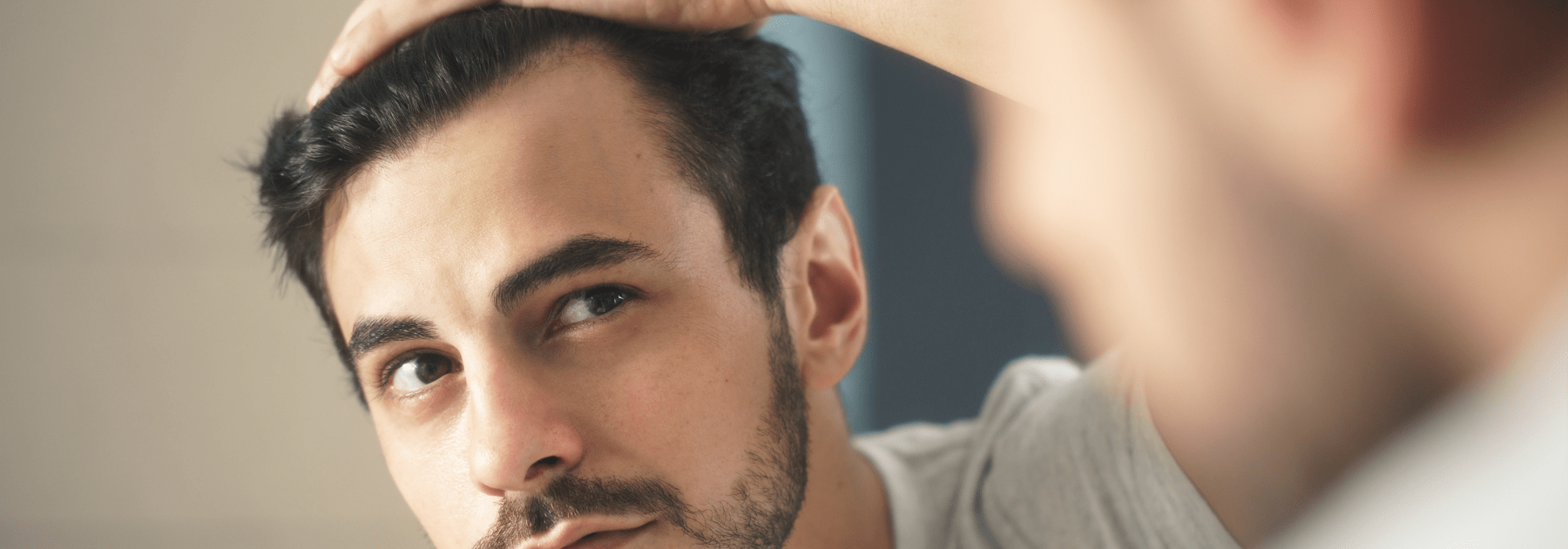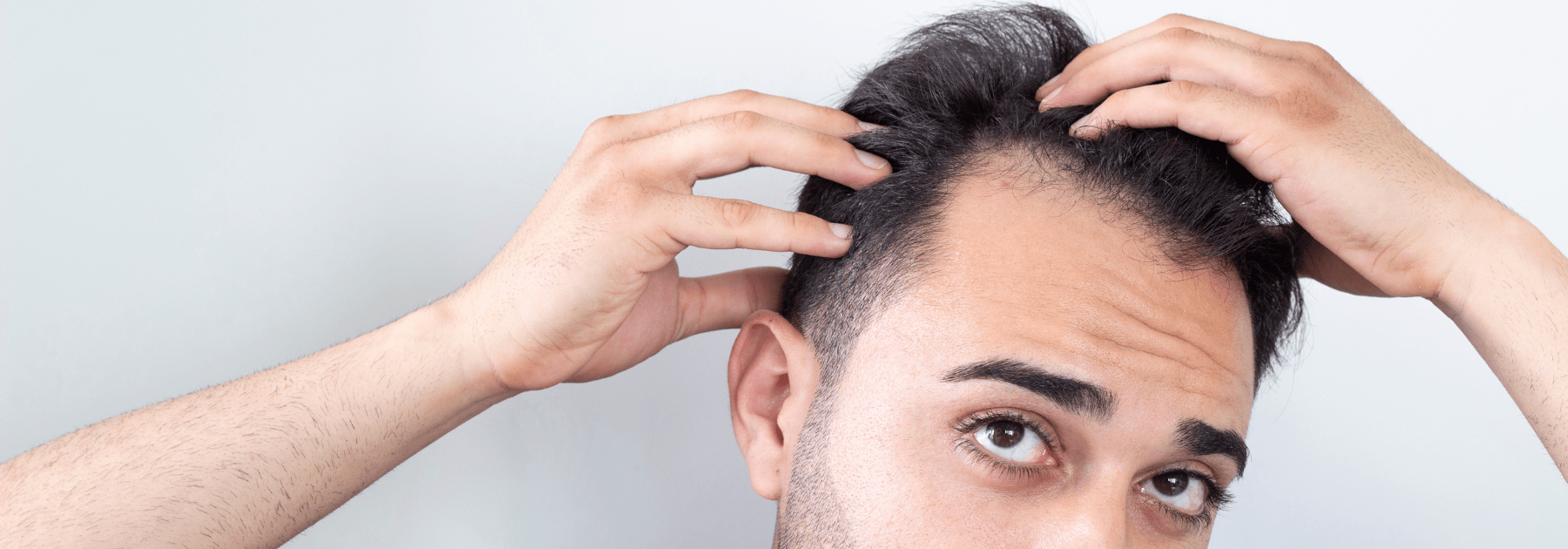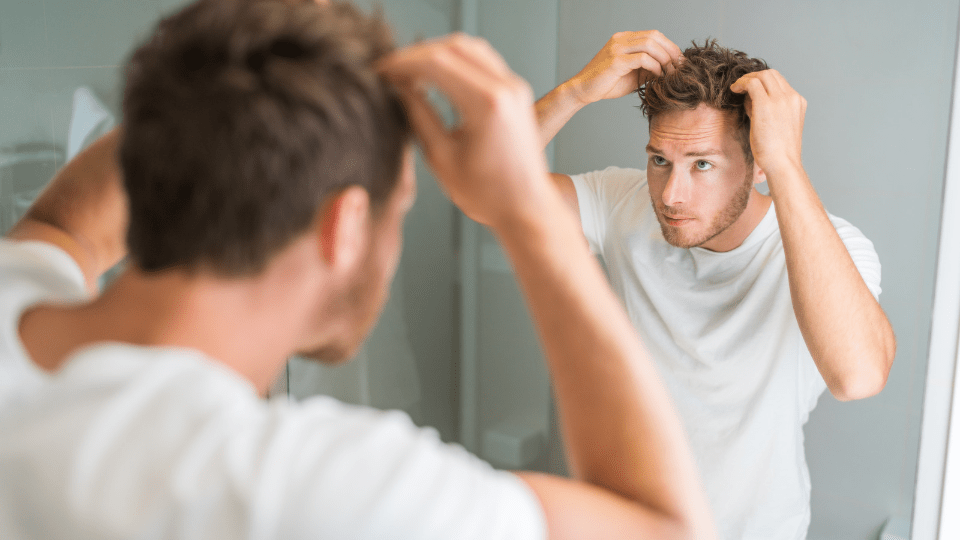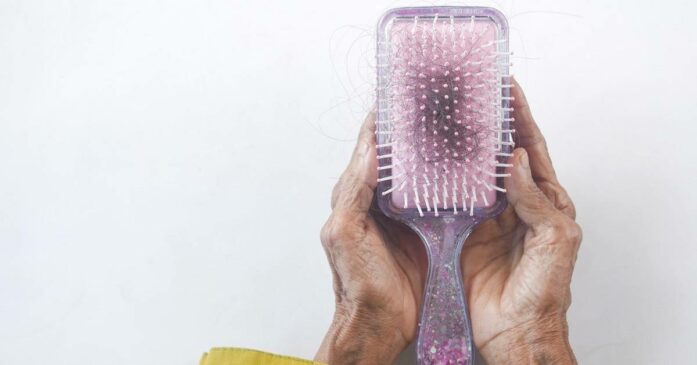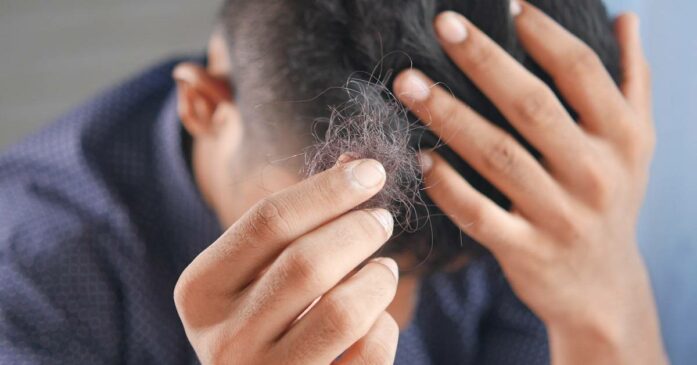Hair loss is a common issue for men, with many experiencing thinning or receding hairlines as they age. At Halo Health, we understand how distressing hair loss can be and are here to provide support and effective treatment options, including tablets that can help slow or even reverse hair loss. In this post, we’ll explore the causes of male hair loss, address common myths, like “does creatine cause hair loss?”, and explain how Halo Health can help you take control of your hair health.
What Causes Male Hair Loss?
Male hair loss can be attributed to several factors, including genetics, hormonal changes, and lifestyle. Understanding these causes is key to finding the right treatment.
- Genetics
The most common cause of male hair loss is androgenetic alopecia, also known as male pattern baldness. This hereditary condition causes hair follicles to shrink over time, leading to thinning hair and eventually baldness. It often begins with a receding hairline or thinning at the crown and progresses gradually. - Hormonal Changes
Hormones play a significant role in hair growth and loss. Dihydrotestosterone (DHT), a derivative of testosterone, binds to hair follicles and causes them to shrink. Over time, this can lead to hair thinning and loss. - Lifestyle Factors
Stress, poor diet, and lack of sleep can also contribute to hair loss. These factors may disrupt the hair growth cycle, leading to increased shedding or weakened hair. - Medical Conditions
Certain medical conditions, such as alopecia areata (an autoimmune disorder), thyroid imbalances, or scalp infections, can also cause hair loss. - Medications
Some medications, including those for cancer, arthritis, and high blood pressure, may have hair loss as a side effect.
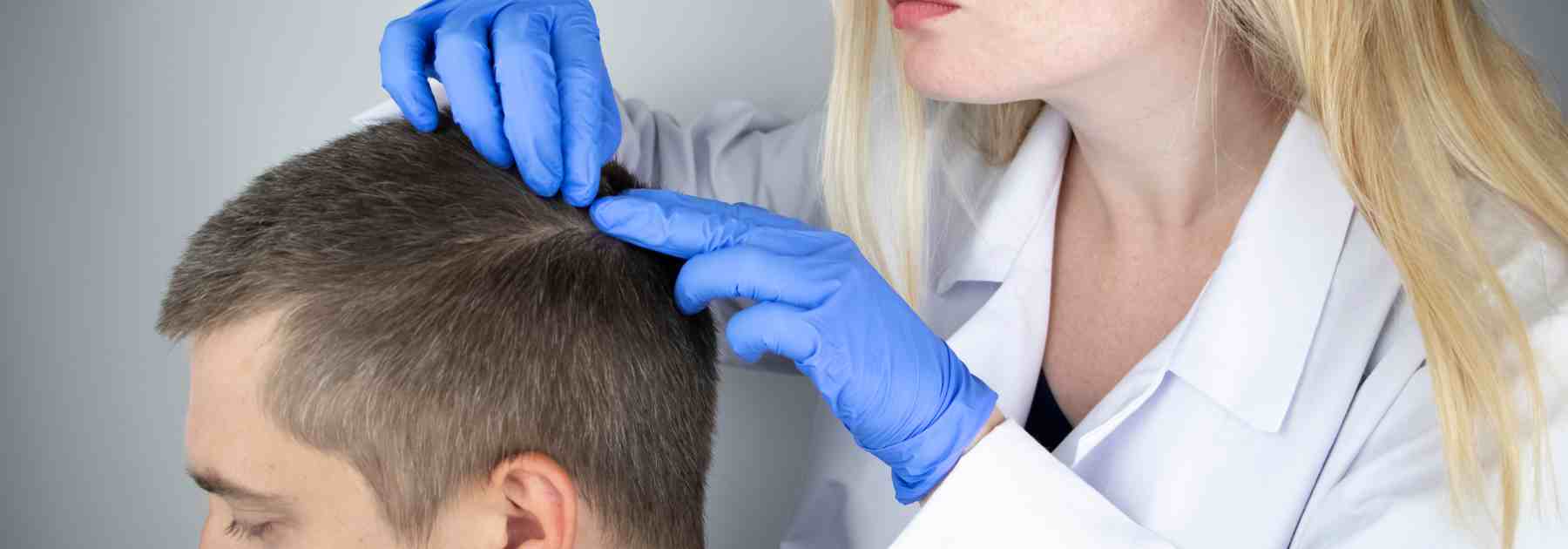
Myths About Hair Loss
When it comes to hair loss, there’s no shortage of myths and misconceptions. It’s important to separate fact from fiction to ensure you’re making informed decisions about treatment.
Myth 1: “Does Creatine Cause Hair Loss?”
Creatine, a popular supplement among athletes and bodybuilders, is often linked to an increase in DHT levels and resulting hair loss. However, there’s no conclusive scientific evidence that creatine directly causes hair loss. While DHT is associated with hair loss, the link between creatine supplementation and hair thinning remains speculative and unproven.
Myth 2: “Wearing Hats Causes Hair Loss”
Wearing hats does not cause hair loss. Hair loss occurs at the follicular level and isn’t influenced by external pressure from hats or helmets.
Myth 3: “Frequent Hair Washing Causes Hair Loss”
Washing your hair doesn’t lead to hair loss. However, harsh shampoos or excessive styling can damage hair, making it brittle and more prone to breakage.
Myth 4: “Hair Loss Comes Only from Your Mother’s Side”
While genetics play a significant role in hair loss, the hereditary factor isn’t limited to your mother’s side of the family. You can inherit hair loss traits from either parent.
Tablets for Male Hair Loss
Tablets are among the most effective treatments for male hair loss, helping to reduce DHT levels and promote hair regrowth. At Halo Health, we offer trusted options to address this issue:
- Finasteride (Propecia)
Finasteride is a prescription tablet that works by blocking the conversion of testosterone to DHT. This prevents DHT from shrinking hair follicles, helping to slow hair loss and, in some cases, stimulate regrowth. It’s a convenient, once-daily treatment proven to be effective for many men. - Biotin Supplements
While not a direct treatment for hair loss, biotin (vitamin B7) can strengthen hair and improve overall scalp health. It’s often used alongside other treatments for optimal results. - Multivitamins for Hair Health
Vitamins such as vitamin D, zinc, and iron play a role in healthy hair growth. Ensuring you’re getting enough of these nutrients can support hair regrowth efforts.
Getting Support from Halo Health
At Halo Health, we’re here to help you navigate your hair loss journey with care and expertise.
Personalised Advice: Our team will assess your situation and recommend the most suitable treatment options for your hair loss.
Access to Trusted Treatments: We provide safe and effective solutions, including prescription tablets like finasteride, ensuring you receive high-quality care.
Ongoing Support: Hair loss treatments take time to show results, and we’ll be with you every step of the way to monitor your progress and make any necessary adjustments.
Discreet Services: We understand that hair loss can be a sensitive topic. Our services are designed to provide the support you need in a confidential and professional environment.

Tips for Managing Hair Loss
In addition to using tablets, there are steps you can take to support your hair health:
Maintain a Balanced Diet: A diet rich in protein, vitamins, and minerals can help keep your hair healthy.
Reduce Stress: Stress management techniques like exercise, meditation, or yoga can support overall health and reduce the risk of hair loss.
Avoid Harsh Treatments: Limit the use of heat styling tools and harsh chemical treatments that can weaken your hair.
Take Control of Your Hair Loss Today
Hair loss can feel overwhelming, but with the right support and treatment, it’s possible to take control and regain your confidence. At Halo Health, we’re committed to helping you achieve the best results with effective solutions like finasteride and personalised care.
If you’re concerned about hair loss or have questions like “does creatine cause hair loss?” reach out to us today. Let us guide you through your options and help you on your journey to healthier, fuller hair.
This blog was written on behalf of Halo Health by Pharmacy Mentor.





